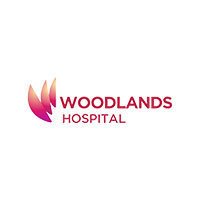Angina is a condition where a person may feel chest pain or discomfort. It is mainly caused by reduced blood flow to the heart muscle. It is usually caused by the narrowing or blockage of the coronary arteries, which supply blood and oxygen to the heart. The other symptoms can include chest pain, shortness of breath, or a feeling of pressure in the chest. Treatment options depend on the underlying cause and may include medication, lifestyle changes, or medical procedures.
| Causes | Coronary artery disease, smoking, high blood pressure |
|---|---|
| Remedies | Nitroglycerin, rest, aspirin |
| Preventive Options | Quit smoking, maintain a healthy weight, control blood pressure and cholesterol levels |
| Treatment Options | Beta-blockers, calcium channel blockers, coronary artery bypass surgery |
| Specialist | Cardiologist |
Angina, or angina pectoris, is a type of chest pain that occurs when there is reduced blood flow to the heart muscle. It is usually described as a feeling of pressure or tightness in the chest, but it can also cause discomfort in the arms, neck, jaw, shoulder, or back. Atherosclerosis, high blood pressure, and coronary artery disease caused by various factors. Physical exertion or stress, and the pain typically subsides within a few minutes after resting or taking medication. Treatment for angina may involve lifestyle changes, such as quitting smoking or improving diet and exercise habits, as well as medications to reduce chest pain and prevent complications. In some cases, procedures such as angioplasty or bypass surgery may be recommended to improve blood flow to the heart.
Angina is chest pain or discomfort that occurs when the heart muscle does not get enough blood and oxygen. It is often a symptom of underlying heart disease, such as coronary artery disease. Here are some examples of conditions where angina may come along with other symptoms are given in the following.
Angina is chest pain or discomfort that occurs when the heart does not receive enough oxygen-rich blood. There are different types of angina are including in the following.
| Types of Angina | Description |
| Stable angina | Pain or discomfort typically lasts for a few minutes |
| Unstable angina | Pain or discomfort may last longer than in stable angina |
| Variant angina | It occurs due to a spasm of the coronary arteries which can cause sudden chest pain |
Angina is a type of chest pain or discomfort that occurs when there is an insufficient blood supply to the heart muscle. It can be a symptom or a warning sign of various medical conditions. Here are some such conditions
CAD occurs due to a buildup of plaque in the arteries that supply blood to the heart. When plaque narrows these arteries, the heart muscle does not receive enough oxygen-rich blood, leading to angina. CAD is a significant risk factor for heart attack, heart failure, and sudden cardiac arrest.
Aortic stenosis is a condition where the aortic valve of the heart becomes narrow, restricting blood flow from the heart to the rest of the body. When the heart has to pump harder to force blood through the narrowed valve, it can cause angina.
A pulmonary embolism is a blood clot that travels to the lungs, blocking blood flow. The lack of oxygen-rich blood in the lungs can lead to chest pain or discomfort, which may be mistaken for angina.
Hypertrophic cardiomyopathy is a genetic condition where the heart muscle becomes thick and stiff, making it harder for the heart to pump blood effectively. This can cause angina, especially during exercise or physical activity.
Aortic dissection is a medical emergency that occurs when the inner layer of the aorta tears, allowing blood to flow into the wall of the artery. The chest pain associated with aortic dissection can mimic angina, but it is often described as sudden and severe.
Mitral valve prolapse is a condition where the valve between the heart's upper and lower left chambers does not close correctly, allowing blood to leak back into the upper chamber. This can cause chest pain or discomfort, which may be mistaken for angina.
Angina is a condition that causes chest pain or discomfort due to reduced blood flow to the heart muscle. The diagnosis of angina may involve a combination of the following tests are given in the following.
Treatment of angina
Here are some drugs commonly used in the treatment of angina
Nitroglycerin is a vasodilator that relaxes the blood vessels and increases blood flow to the heart. It is commonly used to treat acute angina attacks and can be taken orally, sublingually, or through a skin patch.
Beta-blockers are a class of drugs that slow down the heart rate and reduce the workload on the heart. They are used to prevent angina attacks and can also help reduce blood pressure. Common beta-blockers used in angina treatment include metoprolol, atenolol, and propranolol.
Calcium channel blockers are another class of drugs that relax the blood vessels and reduce the workload on the heart. They are often used to treat chronic stable angina and can also help lower blood pressure. Common calcium channel blockers used in angina treatment include amlodipine, verapamil, and diltiazem.
Aspirin is a blood thinner that reduces the risk of blood clots forming in the arteries. It is often prescribed to people with angina to help prevent heart attack and stroke. Low-dose aspirin therapy is generally recommended for people with chronic stable angina.
Ranolazine is a newer medication used to treat chronic angina that is not well-controlled with other drugs. It works by blocking a specific type of sodium channel in the heart, which helps to reduce the workload on the heart and improve blood flow.
CABG surgery is a procedure that reroutes blood flow around a blocked or narrowed artery to improve blood flow to the heart muscle. During the procedure, a healthy blood vessel is taken from another part of the body and connected to the blocked artery, bypassing the blockage. CABG surgery is typically recommended for people with severe coronary artery disease who do not respond well to other treatments.
PCI, also known as angioplasty, is a minimally invasive procedure that involves inserting a catheter into the blocked artery and inflating a small balloon to widen the artery. A stent, a small metal mesh tube, may also be inserted to help keep the artery open. PCI is often used to treat acute angina attacks and can help improve blood flow to the heart.
Making lifestyle changes can help reduce the risk of angina and improve overall heart health. This can include quitting smoking, eating a heart-healthy diet, exercising regularly, maintaining a healthy weight, and managing stress.
Stress and anxiety can trigger angina attacks in some people. Practicing relaxation techniques such as deep breathing, meditation, or yoga can help reduce stress and improve overall well-being.
Some herbal remedies have been found to be beneficial in treating angina. These include garlic, ginger, and hawthorn berries. However, it is important to talk to a healthcare provider before taking any herbal remedies, as they may interact with other medications.
Nitroglycerin Nitroglycerin can also be used as a home remedy for angina. It can be taken as a sublingual tablet, a spray, or through a skin patch. Nitroglycerin works by relaxing the blood vessels and improving blood flow to the heart.
a. Quit smoking Smoking damages the blood vessels, increases blood pressure, and reduces oxygen supply to the heart. Quitting smoking is one of the most effective ways to reduce the risk of angina and other heart-related conditions.
b. Exercise regularly Regular exercise helps maintain a healthy weight, reduce blood pressure, and improve blood circulation. Aim for at least 30 minutes of moderate-intensity exercise, such as brisk walking, cycling, or swimming, five days a week.
c. Eat a heart-healthy diet A diet rich in fruits, vegetables, whole grains, and lean proteins can help reduce the risk of heart disease and angina. Avoid foods high in saturated and trans fats, cholesterol, and sodium.
d. Manage stress Chronic stress can increase the risk of heart disease and angina. Practicing relaxation techniques such as meditation, deep breathing, or yoga can help reduce stress levels.
a. Aspirin therapy Low-dose aspirin therapy can help reduce the risk of blood clots and prevent heart attack and stroke in people with angina.
b. Blood pressure medication If you have high blood pressure, medication can help lower it and reduce the risk of angina.
c. Cholesterol-lowering medication High cholesterol levels can increase the risk of heart disease and angina. Cholesterol-lowering medication can help lower cholesterol levels and reduce the risk of angina.
a. Angioplasty and stenting Angioplasty and stenting can help improve blood flow to the heart by widening the blocked or narrowed artery.
b. Coronary artery bypass graft (CABG) surgery CABG surgery reroutes blood flow around a blocked or narrowed artery to improve blood flow to the heart muscle.
Angina is chest pain or discomfort when the heart muscle does not receive enough blood and oxygen. If you are experiencing angina, it is important to see a doctor are given in the following.
Suppose you have risk factors for heart disease, such as high blood pressure, high cholesterol, diabetes, or a family history of heart disease. In that case, seeing a doctor if you are experiencing angina is important. Your doctor can evaluate your risk factors and recommend lifestyle changes or medications to help manage your condition and reduce your risk of complications. If you are experiencing angina and are concerned about your symptoms, seeing a doctor for evaluation and reassurance is always a good idea.
If you have angina and are concerned about your health, it is important to seek immediate medical attention from a qualified angina doctor. A doctor specializing in treating angina, such as a Cardiologist, would be the right health professional to consult.
Here is a list of Top verified doctors for angina. You can book an appointment with one to start your angina treatment today.

Jaslok Hospital, Mumbai
Rs. 2,500 Consult Fees

CARE Hospital, Banjara Hills, Hyderabad
Rs. 1,000 Consult Fees

Indraprastha Apollo Hospital, Sarita Vihar, Delhi NCR
Rs. 1,800 Consult Fees
A hospital can provide various services to help diagnose and treat your angina. If you are experiencing angina In that case, it is important to visit a angina hospital for a proper diagnosis and treatment plan.
Check a list of Top Hospitals for angina treatment.
Multi Speciality Hospital
Established in 1918
🛌345 Beds
.png)
Multi Speciality Hospital
Established in 1940
🛌220 Beds

Multi Speciality Hospital
Established in 1947
🛌230 Beds
Frequently asked questions and answers about angina.
What are the first signs of angina?
The first signs of angina can include chest discomfort or pain, pressure, or a squeezing sensation in the chest, neck, jaw, shoulder, or back; shortness of breath; sweating; and nausea or dizziness.
What is the main cause of angina?
Angina is caused by a reduced blood flow to the heart, typically due to narrowed or blocked coronary arteries. This can be the result of coronary artery disease or other underlying health conditions.
Are the risks associated with angina life threatening?
Yes. While angina itself is not usually life-threatening, it is a sign that there is an increased risk of heart attack or other serious heart-related conditions. It is important to seek medical attention if you experience any symptoms of angina.
Reviews by patients on different.
Anandita
My father went for a health check up alone at Kokilaben hospital. He was doing stess test and he developed Anterior wall Myocardial infarction (Major heart attack). Thanks to immediate attention by Dr. Pravin Kahale and his team who took my father immediately for Emergency angioplasty even though we were at home. In a heart attack, every minute delay leads to damage to heart muscle and has long term consequences of a weak heart. My father had good salvage and early prompt action lead to preserve heart pumping. Dr. Kahale is an excellent doctor. He has very deep knowledge. He writes few but best medications. He also makes us understand complex things in simple language. Our entire family would strongly recommend Dr. Kahale as a cardiolgist who can deliver the best in most complex cardiac issues. He is always accessible to the entire family and is only a phone call/ message away and resolves all the queries. Highly recommended!
Ishwar Devi
Artemis Hospital
<p>My mother had a bad chest pain the other day. We decided to get her regular checkup done and approached Credihealth for the same. After a couple of options, we decided to visit Artemis. The overall process was very smooth. The ECG had some abnormality. So we consulted Dr Kuldeep Arora for it. He is one gem of a doctor. He was very friendly to talk to. Very sensitive to my mothers concerns. He explained all the medical reports including ECG. We gained immediate confidence in the doctor. He advised a few additional tests. Those were done on same day. After seeing those reports, he proposed a treatment plan. Considering my mothers age, it was empathetic for him to tell no to any procedure. He recommended meds for 2 months and told us to come back in between. Friendly, sensitive and empathetic. All in all good experience.</p>
Dr. Bhabendra Nath Kalita
Dr. Venkatesh treated my dad with utmost care. Although my dad & his reports were not in station, he eagerly looked into the Angiogram video (done in a different place) of my father in my mobile and suggesting corrective treatments. He patiently advised me many things and repeated them again & again for my better understanding. The operation was done by Dr. Girish and although it was critical, it was successful. Dr. Venkatesh has visited us many times during our stay at the hospital despite his busy schedule to inquire about the wellbeing of my father. During the follow-up visits, Dr. Venkatesh has examined my Dad with utmost details, gave proper advice, and suggested & changed medicine courses to suit my dad's body as he has high blood pressure & diabetics. I wish him great success in his career and love of his patients.
Credihealth is an online healthcare portal for all your hospital appointments, diagnostic test bookings, ordering medications, or homecare services. If you have any inquiries, our in-house medical experts can help solve them and guide you to the best specialist in the India.